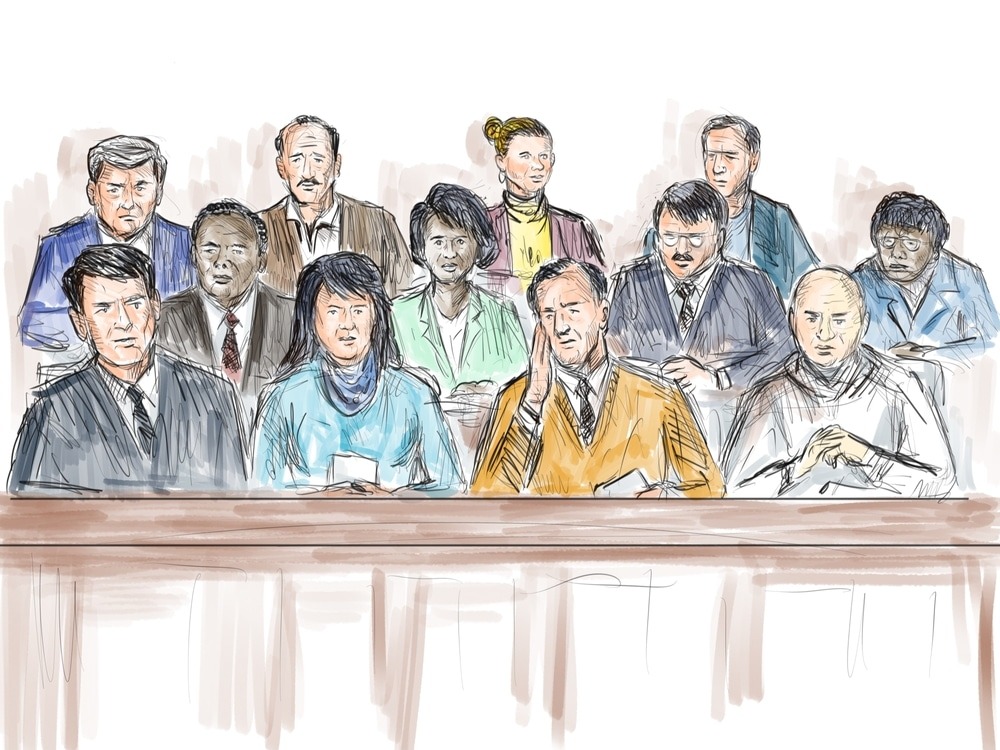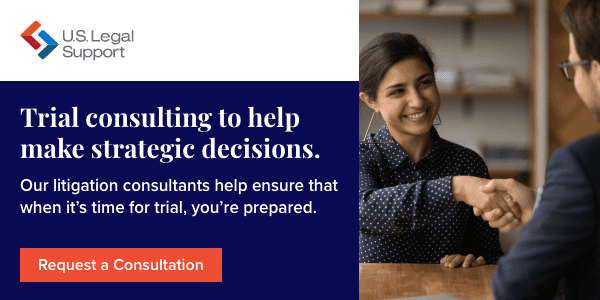Discover the Benefits of Mock Trials

Case preparation can take months of research, depositions, and strategic planning—all for that one high-pressure moment in court. Even learning how to write a good opening statement can take a considerable amount of time and practice. For lawyers to be adequately prepared, they can first try their case in a mock trial. This offers a test environment to identify opportunities, adjust strategies, and improve case presentation before a real trial.
Here are seven benefits of mock trials for trial attorneys.
1. Obtain Unbiased Viewpoints
Mock jurors are individuals who have no stake in or involvement with a case. They’re engaged for a specific number of hours with preassigned roles and presented with a shortened (usually half-day) version of the arguments and evidence.
Mock jurors do not have the overload of background facts and nuances that your team has been absorbing for months, which means they can provide an unbiased perspective on how your case presentation, themes, exhibits, and more come across.
2. Clarify Your Evidence
Can the average juror follow your expert witness testimony, evidentiary exhibits, and trial presentations? Do they come to the intended conclusions that support your trial theme and arguments?
Mock trials provide one avenue to test the impact and clarity of evidence—not just in a standalone examination as with a focus group, but within the context of a trial experience. They help trial teams test:
- Whether technical information is understandably communicated
- If jurors have the time and focus needed to absorb interwoven graphics, arguments, etc.
- Whether evidence confuses or supports your themes
3. Evaluate Witness Credibility
How believable are your witnesses? A mock trial setting is ideal for testing your witnesses’ credibility and demeanor. You can arrange for them to be present at a mock trial or use video clips of their recorded testimony. From this point, you can decide:
- What type of trial preparation each witness needs
- Whether to use uncertain witnesses
- How to adjust your questions for a nervous witness
4. Test Your Arguments
Rehearsing arguments on your own and even running through presentations with your trial team is important preparation, but a mock trial is a dress rehearsal opportunity for your trial theme and arguments. It can uncover:
- What works and what doesn’t
- If your story resonates with the jury
- When language choices or hyperbole are contrary to your goals
- How to position decision-making toward the early phase of the trial
5. Obtain New Evidence
An outside opinion is the ideal source to point out assumptions, hidden expectations, and missing links. Mock trials include post-trial juror interviews that help trial teams understand questions that weren’t answered and gaps in narrative or logic chains.
The mock trial team can identify where they need to fill in evidentiary holes with additional:
- Photographs, videos, or graphics
- Witness testimony
- Scientific results
- Clarifying statements or questions
6. Refine Negotiation Strategy
Since more than 90% of civil lawsuits and criminal cases end in pretrial settlements or plea bargains, is investing in a mock trial worth it?1,2 In short: yes.
A mock trial experience isn’t just a way to prepare for the first day of court—it can provide critical information about how jurors may:
- Distribute blame among multiple defendants
- Allocate compensatory and punitive damages
- Respond emotionally vs. to the letter of the law
This information can help the trial attorney decide what settlement amounts or plea bargains are acceptable and how to schedule, position, and argue their case.
7. Use the Power of Early Deadlines
A mock trial is an ideal way to enforce deadlines that are early enough to make adjustments to:
- Pretrial motions
- Trial strategy, arguments, and evidence
- Pretrial negotiation and mediation tactics
- Presentation videos, graphics, and slides
Next Step: Connect with TrialEx
TrialEd, part of the trial services division of U.S. Legal Support, provides a comprehensive approach to litigation support through strategic trial consulting, multi-media trial graphics, and trial presentation services. They help trial teams navigate the complexities of litigation and gain a winning edge. TrialEx’s seasoned professionals have a proven track record of supporting more than 20,000 high-risk trials, arbitrations, and mediations across all practice areas.
In addition to mock trials, TrialEx offers jury research and consulting, witness preparation, trial graphics, demonstratives, and trial presentation and technology services.
Ready to learn more? Contact us today by phone, email, or website request form to discuss your mock trial and other litigation support needs.
Sources:
- The Outline. Most criminal cases end in plea bargains, not trials. https://theoutline.com/post/2066/most-criminal-cases-end-in-plea-bargains-not-trials
- The Law Dictionary. What Percentage of Lawsuits Settle Before Trial? What Are Some Statistics on Personal Injury Settlements? https://thelawdictionary.org/article/what-percentage-of-lawsuits-settle-before-trial-what-are-some-statistics-on-personal-injury-settlements/

Editoral Policy
Content published on the U.S. Legal Support blog is reviewed by professionals in the legal and litigation support services field to help ensure accurate information. The information provided in this blog is for informational purposes only and should not be construed as legal advice for attorneys or clients.


